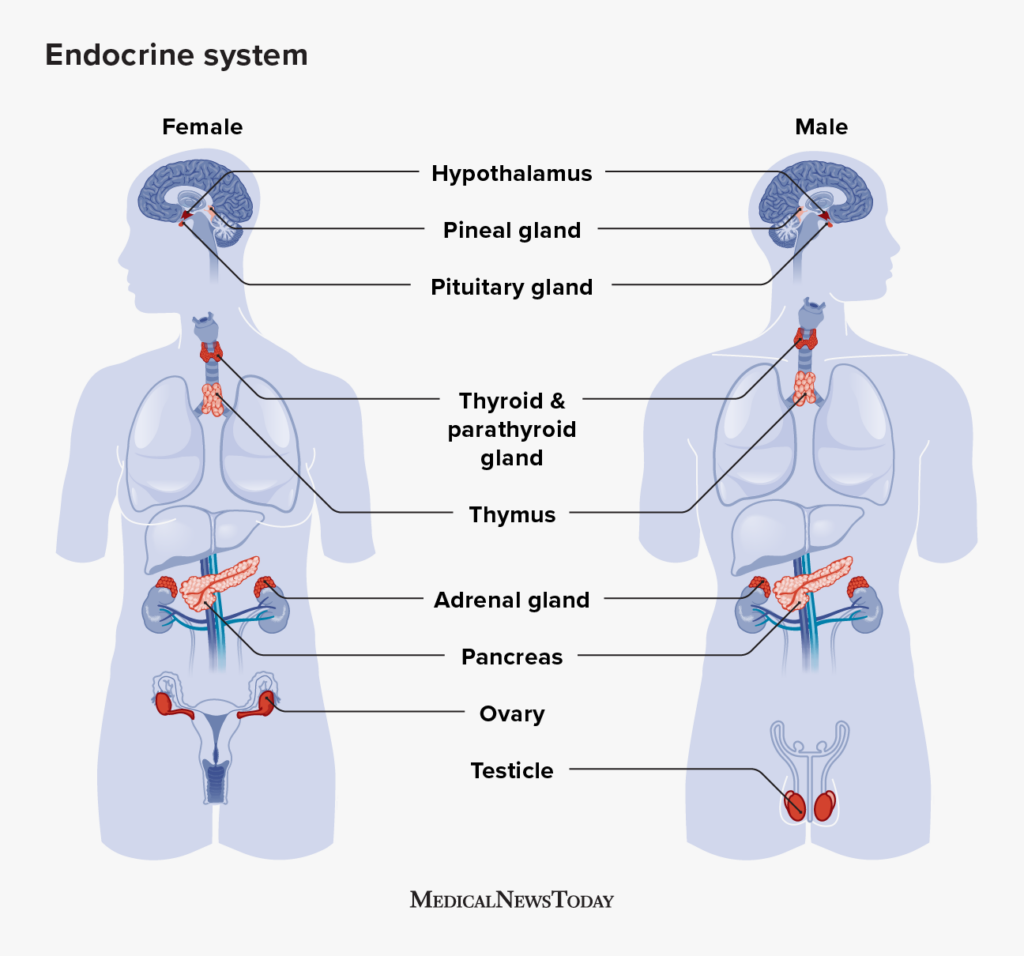Best Endocrinologist Near Me: Situating Top Medical Specialists
Wiki Article
The Science Behind Hormone Guideline: Insights From an Endocrinologist
The Scientific Research Behind Hormone Policy: Insights From an Endocrinologist offers a comprehensive expedition of the detailed procedures included in hormone policy. Whether you are a medical professional looking for a deeper understanding of endocrine function or an individual interested in finding out concerning the scientific research behind hormonal agent guideline, this book is an indispensable resource.Hormonal Agents and Their Features
Hormones play important roles in the law and control of different physiological procedures within the body. These chemical messengers are generated by endocrine glands and are launched into the blood stream, where they take a trip to target cells or organs to apply their impacts. The features of hormones vary and incorporate almost every facet of human physiology.One of the primary features of hormones is to preserve homeostasis, which is the stable interior environment necessary for the body to function ideally. As an example, insulin, a hormonal agent created by the pancreatic, regulates blood sugar levels by advertising the uptake and storage of sugar in cells. Another hormone, cortisol, aids the body respond to stress and anxiety by enhancing blood sugar level levels and reducing the body immune system.
Hormones additionally play important duties in growth and advancement. Development hormonal agent, produced by the pituitary gland, promotes the development of tissues and bones, while thyroid hormonal agents manage metabolic process and affect the growth of the nerve system - Best endocrinologist in austin. In addition, reproductive hormones, such as estrogen and testosterone, are accountable for the growth and upkeep of second sexual qualities and the guideline of the menstruation cycle
The Endocrine System: A Review
Playing an important function in the guideline and control of physical procedures, the endocrine system is an intricate network of glands that produce and release hormones into the bloodstream. These glands, including the hypothalamus, pituitary gland, thyroid gland, adrenal glands, pancreas, ovaries, and testes, secrete hormones that serve as chemical messengers, influencing various bodily features. The endocrine system works in conjunction with the nerves to maintain and control homeostasis, ensuring that the body's internal environment remains stable.It generates hormonal agents that inhibit the launch or boost of hormones from the pituitary gland, which in turn controls the task of other endocrine glands. The thyroid gland, situated in the neck, creates hormones that manage metabolic process and power balance.

Guideline of Hormone Production
The law of hormonal agent production involves an intricate interplay between various glands and responses devices within the endocrine system. Hormones are chemical messengers that play a crucial duty in preserving homeostasis and coordinating numerous physiological processes in the body. The manufacturing of hormones is tightly regulated to guarantee the proper performance of the endocrine system.The hypothalamus, located in the mind, functions as a vital regulator of hormonal agent production. It releases hormones that prevent the manufacturing or promote of hormonal agents by the pituitary gland, which is frequently referred to as the "master gland" of the endocrine system. The pituitary gland, consequently, produces hormones that act upon various target glands throughout the body, boosting them to produce and launch specific hormones.
Feedback systems likewise play an essential duty in hormone regulation. When hormone levels rise over or drop below the optimal range, the body activates systems to either decline or increase hormone production, respectively, to bring back equilibrium.
Comments Loops in Hormone Policy
Feedback loops play an essential duty in the family health clinic law of hormonal agent manufacturing. These loops include a series of communications in between the endocrine glands, hormones, and target organs to maintain homeostasis in the body. There are 2 sorts of comments loops: negative responses and favorable responses.Negative responses is one of the most typical sort of feedback loophole in hormone policy. It functions by picking up the degrees of a hormonal agent in the blood and adjusting hormonal agent production accordingly. When hormonal agent levels rise over a specific threshold, the hypothalamus in the mind indicates the pituitary gland to reduce hormone manufacturing. This, consequently, decreases the stimulation of the target body organ, resulting in a decrease in hormonal agent secretion. On the other hand, when hormone degrees go down below the limit, the hypothalamus stimulates the pituitary gland to increase hormonal agent production, bring back balance.
Positive responses loops, on the various other hand, magnify hormone production. This takes place when a hormone promotes the release of more of the very same hormone, causing a rapid rise in its levels. Nevertheless, favorable feedback loopholes are much less common in hormone law and are usually included in particular physical procedures, such as childbirth and lactation.
Elements Affecting Hormonal Agent Equilibrium
Factors influencing hormone balance include dietary options, way of living habits, and environmental exposures. These elements can have a considerable influence on the fragile equilibrium of hormonal agents in the body, influencing different physiological procedures and general wellness.Dietary choices play an essential role in hormone law. Taking in a balanced diet that includes a selection of nutrients is crucial for preserving hormone balance.
Sufficient rest is essential for hormonal agent production and law, as disrupted sleep patterns can lead to inequalities. Furthermore, persistent tension can dysregulate the hypothalamic-pituitary-adrenal (HPA) axis, a key player in hormonal agent regulation, leading to a waterfall of hormone imbalances.

Final Thought
In verdict, recognizing the scientific research behind hormonal agent law is crucial for keeping total wellness and wellness. Hormones play important functions in various physical functions, and their manufacturing is managed by intricate comments loops.The Scientific Research Behind Hormone Regulation: Insights From an Endocrinologist uses an extensive expedition of the intricate procedures involved in hormonal agent policy. It produces hormonal agents that stimulate or prevent the release of hormones from the pituitary gland, which in turn regulates the task of other see this endocrine glands. It launches hormones that stimulate or prevent the manufacturing of hormones by the pituitary gland, which is often referred to as the "master gland" of the endocrine system. The pituitary gland, in turn, creates hormones that act on different target glands throughout the body, boosting them to create and launch particular hormonal agents.
When hormone levels climb above a specific threshold, the hypothalamus in the mind signals the pituitary gland to reduce hormonal agent production. (Endocrinologist in cedar park)
Report this wiki page